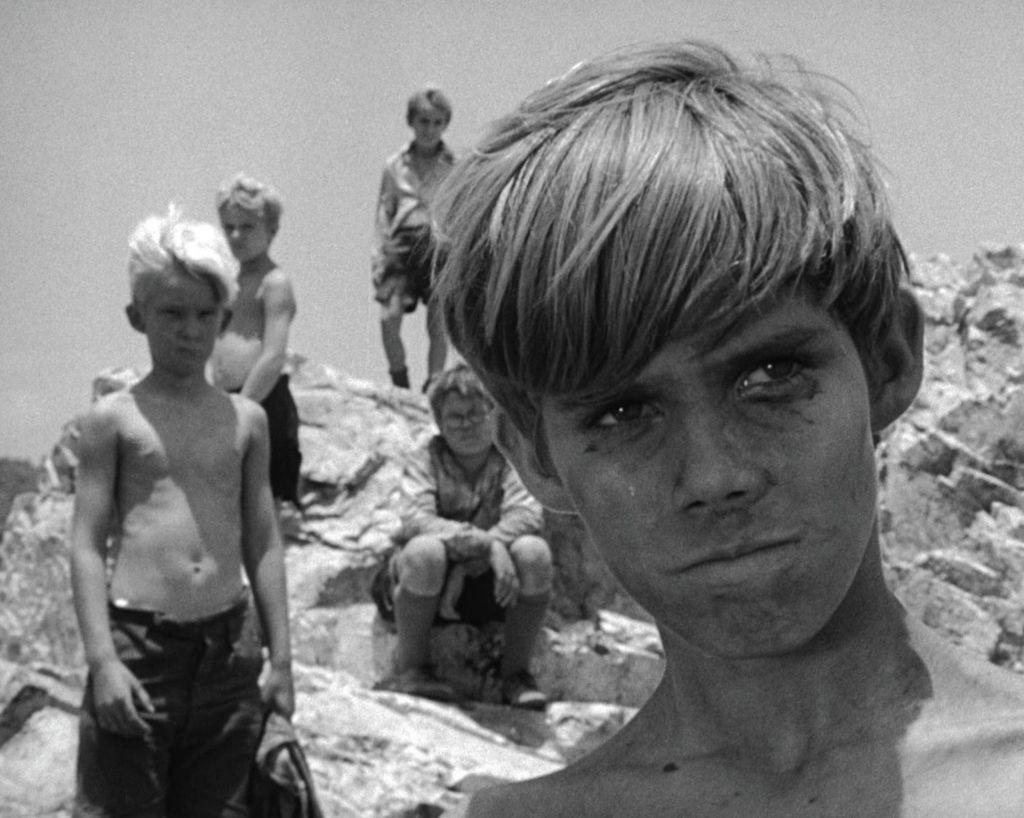The Mark of the Beast CIVILISATION AND MORALITY IN LORD OF THE FLIES


William Golding’s 1954 novel Lord of the Flies is a perennial staple of required-reading lists in secondary schools. And, with it, Peter Brook’s 1963 cinematic adaptation of the book is routinely wheeled out in front of classes. Unlike the book, the film isn’t exactly an unimpeachable classic. It’s slightly clunky, and often poorly acted; there’s a reason why Hugh Edwards, the ten-year-old who plays Piggy in the movie, never appeared in another film. And where the book is hailed for its timelessness, this movie feels dated – the music, mise en scène and, uh, full-frontal boyhood nudity very much of their day.
The production itself sounds as wild as the story, in which a group of schoolboys survive a plane crash and end up stranded on a deserted island; there, they form a society, only to slowly watch it descend into anarchy. To capture this, Brook scouted for non-professional English actors, then flew them off – without parental accompaniment – to the tiny island of Vieques, off the coast of Puerto Rico. There, in 1961, they lived for a summer at an abandoned pineapple cannery that had been turned into a veritable summer camp.1 Rather than forcing the children to learn lines, the filmmakers staged the scenes shot in groups as a form of play. Brook and cinematographer Tom Hollyman shot handheld, in an observational fashion, decades before digital technology made such a documentary-style approach easy.2 Sixty hours of film were shot, and it wasn’t until post-production, back in England, that all this footage could be combed through and cut all the way down to a ninety-two-minute picture.3
Despite some of these modes of realism and improvisation, this still feels very true to the novel – especially in comparison to Harry Hook’s awful 1990 Hollywood adaptation, which introduces colour, swearing, all-American militarism, an adult character (which suggestsIn its eerie, vintage black-and-white form, Brook’s adaptation has its own sense of unease about it: something echoing a novel that acts as a parable about human nature and social structures.
You’re reading a preview, subscribe to read more.
Start your free 30 days





